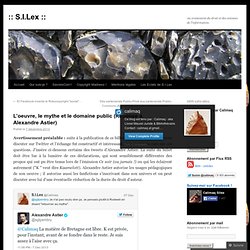

Take In Tilda Swinton's Wisdom With This Beautiful Speech. By Peter Knegt | /Bent February 10, 2015 at 2:48PM "Art is good for my soul precisely because it reminds me that we have souls in the first place.

" Sandro Kopp Tilda Swinton in the Rothko Chapel in Houston. An eloquent, fluid and downright gorgeous speech that Tilda Swinton made last year when she was presented with the Rothko Chapel Visionary Award at the The Rothko Chapel in Texas has been making the social media rounds (thanks to this blog), and it's definitely worth a read (or two). Speaking to ideas of art and life, light and dark, just try not to melt as you take in her wise words: “I had a dream last night that my brother told my father why I am here tonight and my father misheard the name of your most generous prize and declared those who honour me highly perceptive to be recognising me with a Contrary Award.
Discovering the landscape of a world inhabited by artists has been one of the miracles of my life. Here is the darkness. Here comes the light. ‘What is it? We come. De Molière au «Tree» de McCarthy: 350 ans de plug anal artistique. Avant même le dégonflage fatal par des inconnus du Tree de Paul McCarthy, le Printemps français, mouvement mêlant militants identitaires et catholiques traditionalistes, avait tweeté : «Un plug anal géant de 24 m de haut vient d’être installé place Vendôme !
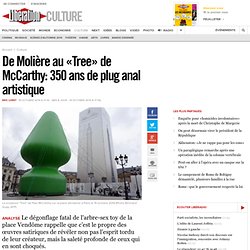
Place #Vendôme défigurée ! Paris humilié !» Cerise Press › A Sense of Questing: Kim Cheng Boey on Poetry. Kim Cheng BoeyPHOTO COURTESY OF THE AUTHOR How does such displacement inform or alter your writing?
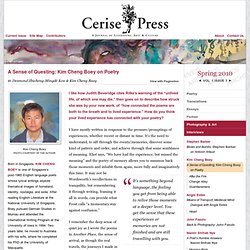
Displacement has always been there in my work. The feeling of not-being-at-home. The quarrel with the self and where one is. In a sense, displacement is what makes writing possible and necessary. But as the cliché goes, you leave home in order to come back to it. When reading your poems, I thought of Pseudo-Dionysius of Areopagite, The Desert Fathers, of John of the Cross, even Jacob Boehme, but contemporarised into something immediate, relevant and determined. Inspiration is something that is rarer as you age. As a writer who works with religious tropes from across different world religions, I’m intrigued by how you frame your own spirituality, against your own writing. On the topic of living poets, who are you reading now? I find myself reading more prose these days. More people should write « the jsomers.net blog. More people should do what I’m doing right now.
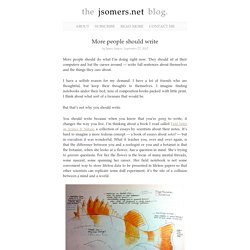
They should sit at their computers and bat the cursor around — write full sentences about themselves and the things they care about. I have a selfish reason for my demand: I have a lot of friends who are thoughtful, but keep their thoughts to themselves. I imagine finding notebooks under their bed, tens of composition books packed with little print.
I think about what sort of a treasure that would be. But that’s not why you should write. You should write because when you know that you’re going to write, it changes the way you live. That’s the promise: you will live more curiously if you write. It’s like what happens to a room during a game of “I Spy”: if your friend spies something red, the red stuff glows. When I have a piece of writing in mind, what I have, in fact, is a mental bucket: an attractor for and generator of thought. Writing needn’t be a formal enterprise to have this effect. I suggest writing emails to your friends. Expositions. Maroc, couleur désert Du 30 avril au 24 août 2014 Musée Bargoin, Clermont-Ferrand Exposition exceptionnelle puisque pour la première fois seront présentées une centaine de textiles (tapis, couvertures et coussins) de la tribu berbère des Aït Khebbach, nomades et sédentaires du désert du Maroc oriental, à la frontière de l’Algérie.

Une scénographie originale permettra de comprendre l’usage quotidien de ces pièces et d’appréhender le contexte dans lequel elles sont fabriqués à travers des photographies, des films, des musiques et des mises en situation. Proposant une approche ethnologique inédite pour les tapis tribaux du Maroc, chaque pièce sera associée aux tisserandes qui les ont créés par l’intermédiaire de portraits grandeur nature réalisés par le photographe Serge Anton.
A cette occasion un ouvrage bilingue (français/anglais) sera édité. L’exposition est conçue pour être itinérante. Demo of Beat It composed using only Michael... The Jealous Curator /// curated contemporary art. I don’t even know what to write… this has been hush-hush for so long… but finally, I can tell you all of the ins & outs of my book that has just been released by Chronicle Books {available in stores all over the world?!!}
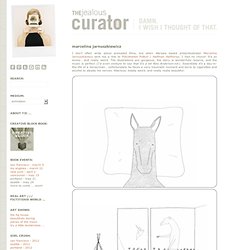
Let’s start with the title. It’s called CREATIVE BLOCK, and here’s what it looks like (an instagram taken with my very old phone, but you get the idea): *The cover was designed by Dinah Fried at Chronicle, and then painted by Toronto based artist Amanda Happé. I love it so much and am proud to have had such talented people working on this project. I came up with the idea for CREATIVE BLOCK for myself, just as much as for all of you. Finally! Gah! The book is now on shelves, all over the world, as of March 2014, and online via Amazon, Chronicle Books, and several others. Ps. Christopher Vogler. Un article de Wikipédia, l'encyclopédie libre.

Christopher Vogler est un écrivain américain, analyste pour les studios d'Hollywood. Il est l'auteur du Guide du scénariste (The Writer's Journey) et est reconnu pour son travail dans les domaines de la mythologie et du parcours héroïque, à la suite de Joseph Campbell. L’oeuvre, le mythe et le domaine public (Réponse à Alexandre Astier) Avertissement préalable : suite à la publication de ce billet, Alexandre Astier est venu discuter sur Twitter et l’échange fut constructif et intéressant, ce qui est très rare sur ces questions.
